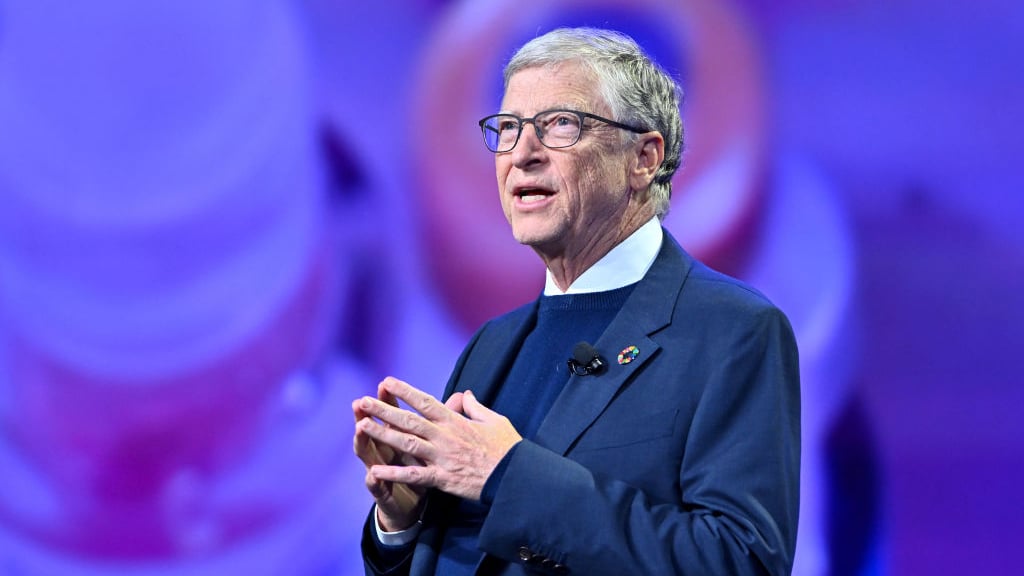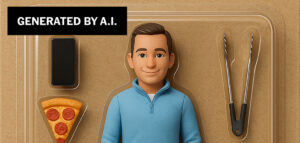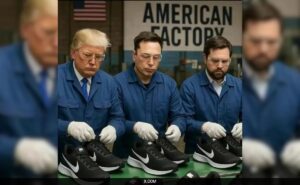Bill Gates Asserts That Humans May No Longer Be Necessary for Many Tasks in the Era of AI

The Future of Work in the Age of AI
Bill Gates, the co-founder of Microsoft, has been vocal about the future implications of Artificial Intelligence (AI) on employment. In a recent chat with Jimmy Fallon, he mentioned that many jobs may no longer require human involvement. This brings forward an interesting conversation about the landscape of work as AI continues to evolve and integrate into various fields.
AI’s Impact on Employment
Gates emphasized that certain professions like manufacturing, agriculture, and logistics could be largely automated. He suggested that tasks such as making products, transporting goods, and even food production will eventually become routine, mainly resolved by AI systems.
In his own words, Gates stated, “There will be some things we reserve for ourselves,” meaning that while many roles may vanish, there are areas where human touch will still be valued. He raised the topic of health care and education, predicting that exceptional doctors and teachers—once rare—might soon become commonplace.
Job Concerns Among Workers
As AI grows, many workers are understandably worried about job security. A survey by Forrester revealed that a staggering 86% of US employees are anxious about losing their jobs to AI and automation. This growing concern reflects the uncertainty surrounding the power of AI and its potential consequences on traditional employment.
The Healthcare Sector
Despite Gates’ confidence in AI’s capabilities, the health care sector is one area where public opinion remains cautious. A study conducted by the Pew Research Center in 2023 indicated that 60% of Americans expressed skepticism about AI’s role in diagnosing diseases, with a third believing it could yield negative outcomes for patients. This resistance highlights the need for a balanced approach when incorporating AI into critical human-centric industries.
Gates’ Vision for AI’s Future
Gates has a track record of making accurate predictions regarding technology. He anticipated the rise of AI agents that could assist in diverse tasks across life. Fast forward to today, and major tech firms—including Nvidia and OpenAI—are developing their own AI agents, emphasizing their potential to revolutionize various aspects of work and daily life.
However, Gates has not shied away from discussing potential risks aligned with AI advancements. In a detailed letter released earlier this year, he raised concerns about the possibility of powerful AIs setting their own agendas. He wondered, “What happens if they conflict with humanity’s interests?” This fear encompasses not only job displacement but also ethical and existential dilemmas.
The Risks of Advanced AI
In an interview with PCMag, Gates further elaborated on AI’s risks, stating, “As we map our human strengths and weaknesses onto any new tools we get, AI is the scariest one of all.” His perspective suggests that while AI can offer solutions, it also poses significant challenges that need careful evaluation.
Besides concerns about employment, he pointed out environmental risks associated with AI. This mirrors historical innovations, like the printing press, which have been used for both beneficial and harmful purposes. The dual nature of technological advancement urges us to approach AI with caution.
Future Career Pathways
In spite of the fears surrounding AI, Gates offered some rays of hope for specific career paths. He noted areas that are likely to remain human-driven, particularly in entertainment and creative industries where real human experiences and emotions are irreplaceable.
The transition into an AI-driven world may indeed alter the job landscape dramatically. As industries adapt and evolve, it will be crucial for workers to remain adaptable, gaining new skills and embracing lifelong learning to thrive amid these changes. As AI continues to unfold, understanding its impact on work and society will be essential for navigating this new paradigm.






